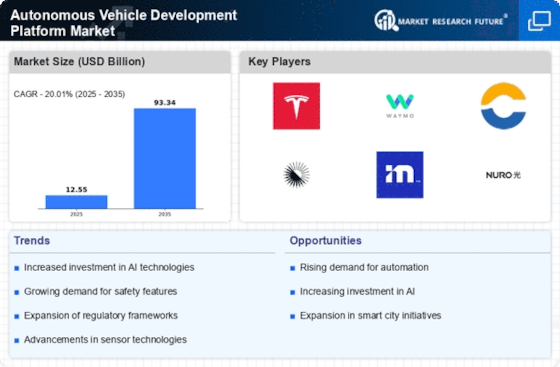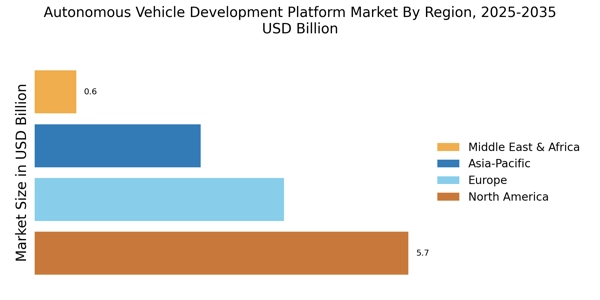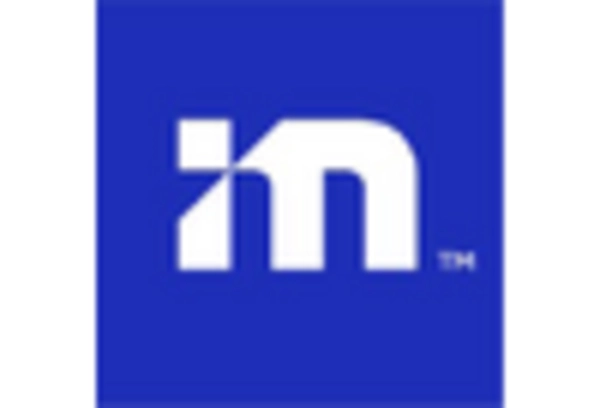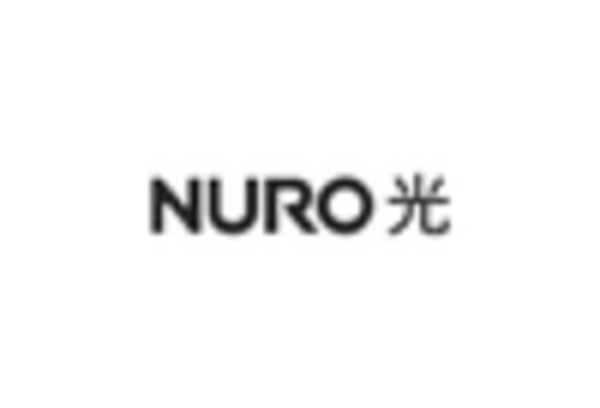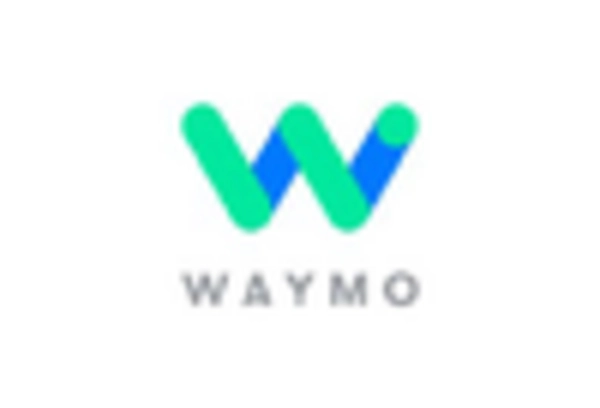Rising Demand for Autonomous Vehicles
The increasing consumer demand for autonomous vehicles is a primary driver of the Autonomous Vehicle Development Platform Market. As urbanization accelerates, the need for efficient transportation solutions becomes more pressing. According to recent estimates, the autonomous vehicle market is projected to reach a valuation of over 500 billion by 2030. This surge in demand compels manufacturers and developers to invest in advanced platforms that facilitate the creation of autonomous systems. The Autonomous Vehicle Development Platform Market is thus witnessing a significant influx of investment aimed at enhancing vehicle safety, efficiency, and user experience. This trend indicates a robust growth trajectory, as stakeholders recognize the potential of autonomous vehicles to transform mobility and reduce traffic congestion.
Growing Focus on Safety and Efficiency
The growing focus on safety and efficiency in transportation is a significant driver of the Autonomous Vehicle Development Platform Market. With rising concerns over road safety, stakeholders are increasingly prioritizing the development of autonomous systems that can reduce accidents and enhance overall traffic management. Research indicates that autonomous vehicles could potentially reduce traffic fatalities by up to 90%. This emphasis on safety is driving investments in advanced development platforms that incorporate cutting-edge safety features and real-time data analytics. Consequently, the Autonomous Vehicle Development Platform Market is experiencing heightened interest from automotive manufacturers and technology firms seeking to create safer and more efficient transportation solutions.
Increased Investment from Tech Companies
Increased investment from technology companies is reshaping the landscape of the Autonomous Vehicle Development Platform Market. Major tech firms are entering the autonomous vehicle space, recognizing the potential for innovation and profitability. This influx of capital is facilitating the development of advanced platforms that integrate artificial intelligence, machine learning, and data analytics. As these companies leverage their expertise in software and hardware, the Autonomous Vehicle Development Platform Market is likely to witness rapid advancements in vehicle capabilities. The competitive landscape is evolving, with tech companies collaborating with traditional automotive manufacturers to accelerate the development of autonomous solutions, thereby driving market growth.
Government Initiatives and Regulatory Support
Government initiatives and regulatory support play a crucial role in shaping the Autonomous Vehicle Development Platform Market. Many countries are actively promoting the development and deployment of autonomous vehicles through favorable policies and funding programs. For instance, regulatory frameworks are being established to ensure safety and encourage innovation in autonomous technologies. This support is essential for building public trust and facilitating the testing and deployment of autonomous vehicles on public roads. As a result, the Autonomous Vehicle Development Platform Market is likely to benefit from increased investment and collaboration between public and private sectors, fostering an environment conducive to technological advancements and market growth.
Technological Advancements in Sensor and Software
Technological advancements in sensor technology and software development are pivotal to the growth of the Autonomous Vehicle Development Platform Market. Innovations in LiDAR, radar, and camera systems enhance the perception capabilities of autonomous vehicles, allowing for safer navigation in complex environments. Furthermore, the integration of sophisticated algorithms and machine learning techniques enables vehicles to process vast amounts of data in real-time. The market for these technologies is expected to grow significantly, with estimates suggesting a compound annual growth rate of over 20% in the coming years. As these technologies mature, they will likely drive the demand for comprehensive development platforms that support the integration of various components, thereby fostering innovation within the Autonomous Vehicle Development Platform Market.


